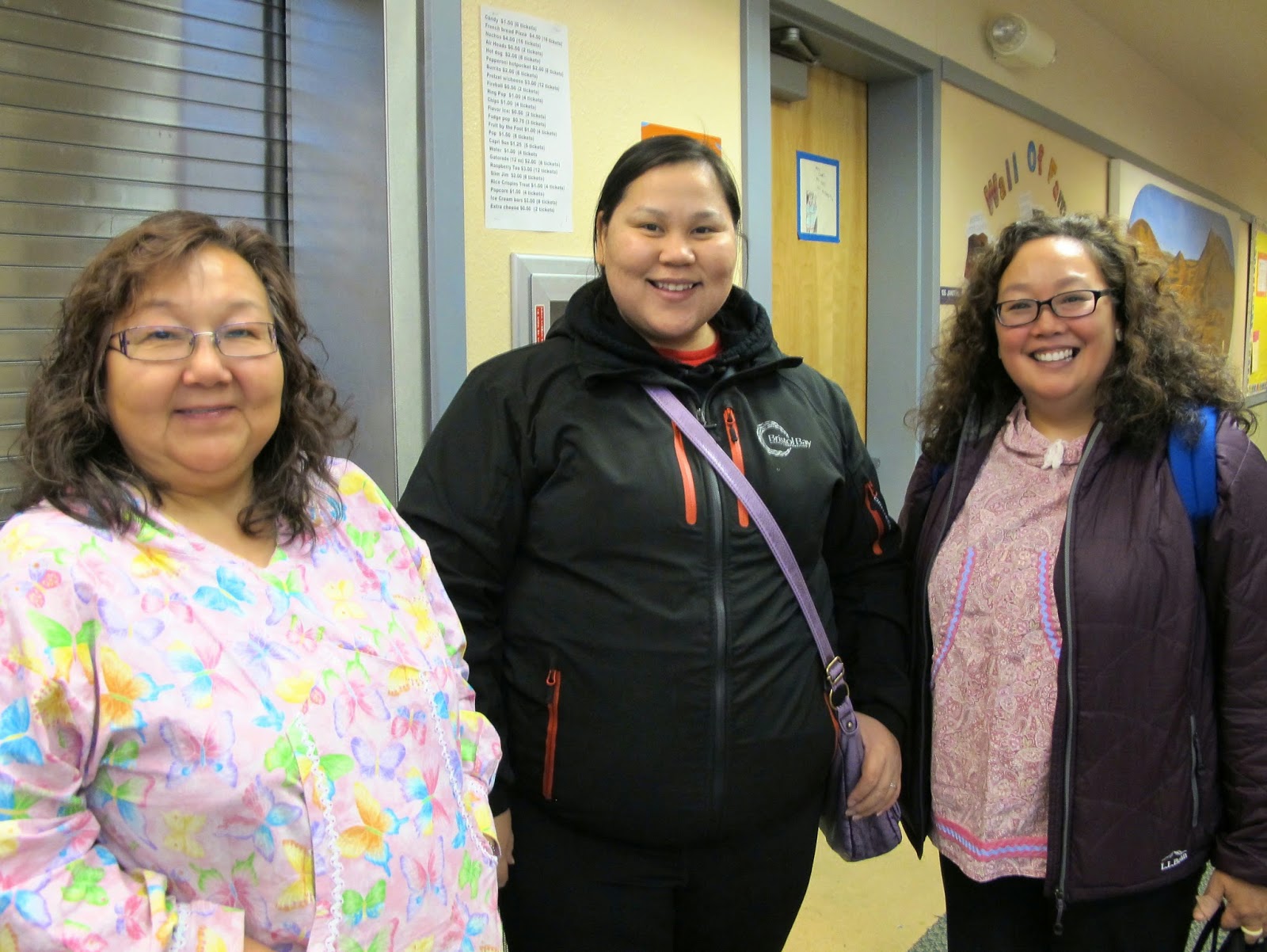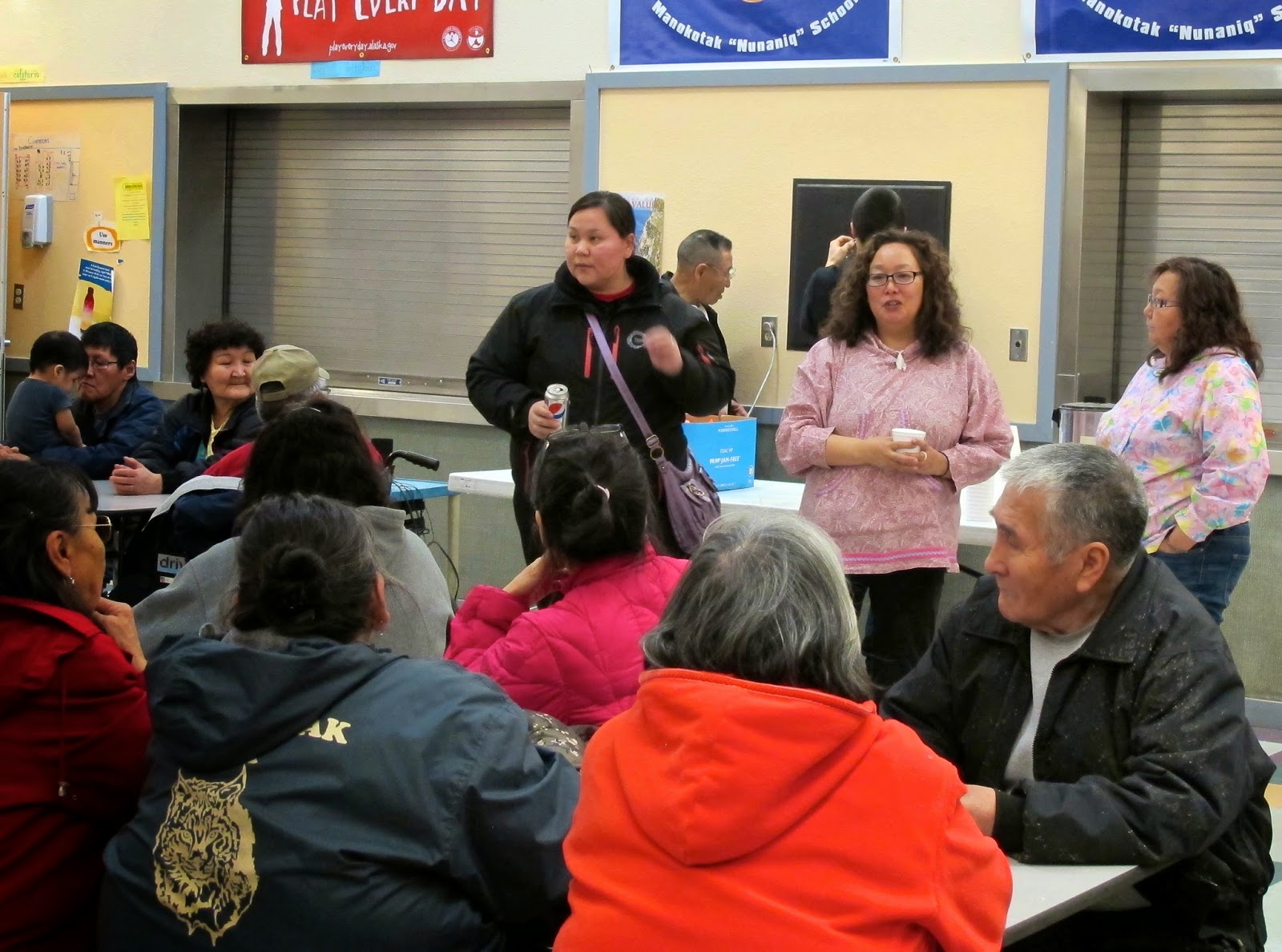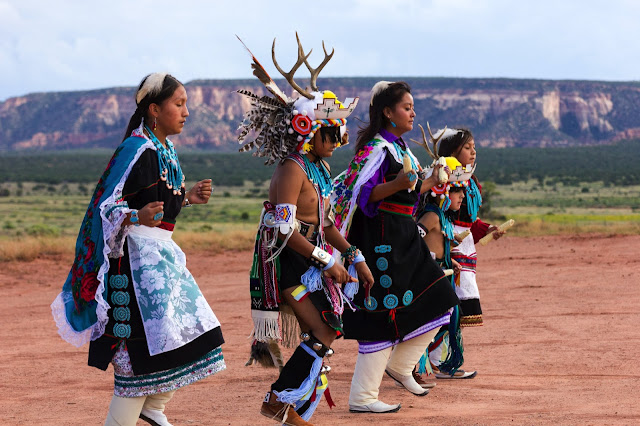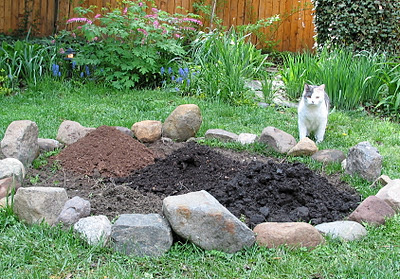Making Voting Friendly, the Alaska Native Way
This article appeared on Indian Country Media Network in 2014. For more on topics like this, see my book, American Apartheid: The Native American Struggle....
Beaming with pleasure, Arline Franklin addressed an October 31 village council meeting in Manokotak, in southwestern Alaska.
Speaking in Yup’ik, Franklin, the local absentee voting official, or AVO, is seen here far right. She exhorted friends and relatives to early vote. Cheering her on were Rose Wassillie,
AVO of nearby Togiak and a village resource specialist for Bristol Bay Native
Corporation (center), and Grace Mulipola, of Koliganek, now a BBNC legal assistant in
Anchorage (left).
It had taken 18 hours and several flights
to get from Anchorage to the isolated village. We were turned back by a
blizzard and diverted because of a slushy runway before our five-seater plane finally touched down in a forested river valley surrounded by craggy, snow-dusted
mountains.
At one point during their presentation to
the council meeting, the three early-voting cheerleaders led the approximately 75
people present in a chorus of “Every. Vote. Counts!” Said Wassillie, “We want
voting to be a good experience.” In the past, badly translated ballots, referendum
language that was more legalese than plain English, uncooperative election
workers and more conspired to make voting a difficult, unhappy and even
humiliating process for Alaska Native people. For decades, the state was under
special Department of Justice scrutiny for the poor education offered to Native
people, resulting in depressed election turnout.
 Since this past spring, the state’s
Native leadership has worked to fix the problems. They’ve set up early voting
sites in villages, most for the first time, and appointed lively and caring AVOs
like Franklin and Wassillie. They’ve sued the state to improve language
assistance for voters who aren’t proficient in English. Lead plaintiff in the
suit, Mike Toyukak, is a Manokotak elder.
Since this past spring, the state’s
Native leadership has worked to fix the problems. They’ve set up early voting
sites in villages, most for the first time, and appointed lively and caring AVOs
like Franklin and Wassillie. They’ve sued the state to improve language
assistance for voters who aren’t proficient in English. Lead plaintiff in the
suit, Mike Toyukak, is a Manokotak elder.
The trio’s enthusiastic sales pitch worked,
and Manokotak villagers lined up to cast early ballots. Elders said they were
grateful for the women’s encouragement.
Franklin explained that early voting is critical
in a subsistence community like Manokotak, because hunters and gatherers can’t
necessarily drop everything to go to the polls on Election Day. She described
the demanding yearly round of fishing, berry picking and bird hunting in
spring, summer and fall, then seal, moose and walrus hunting as winter sets in.
“As we speak, my son is headed for the lake to fish and to see if there are any
ducks,” said Franklin. “Our hunters go out several times a week, and the rest
of the time we’re processing what they bring in. Our freezers are filled with our
Native foods.”
Interest in the 2014 election is high,
and anecdotal reports indicate more Alaska Natives than ever have already voted
this year, said Mulipola. The hot issue for them is subsistence hunting rights and
turning out for candidates who support them, notably Senate candidate Mark
Begich. The influential Alaska Federation of Natives recently endorsed him, and
he was the first candidate mentioned by any voter. “If we don’t hunt, we
starve,” said Franklin.
Dana Bartman, assistant principal of
Manokotak’s pre-K–12 school, organized the appearance of the early-voting
coordinators at the council meeting. She recalled Alaska Natives turning out to
support Lisa Murkowski in her successful write-in Senate campaign. “We proved
the power of our vote,” said Bartman (shown receiving a ballot from Franklin).
People in Manokotak may not be rich by certain
fiscal measures, but their life is one of great abundance. Their water is pure,
their air is clear, and their land and rivers are teeming with game. They and
Natives throughout rural Alaska are determined that this world will endure.
Text and photographs c. Stephanie Woodard.



